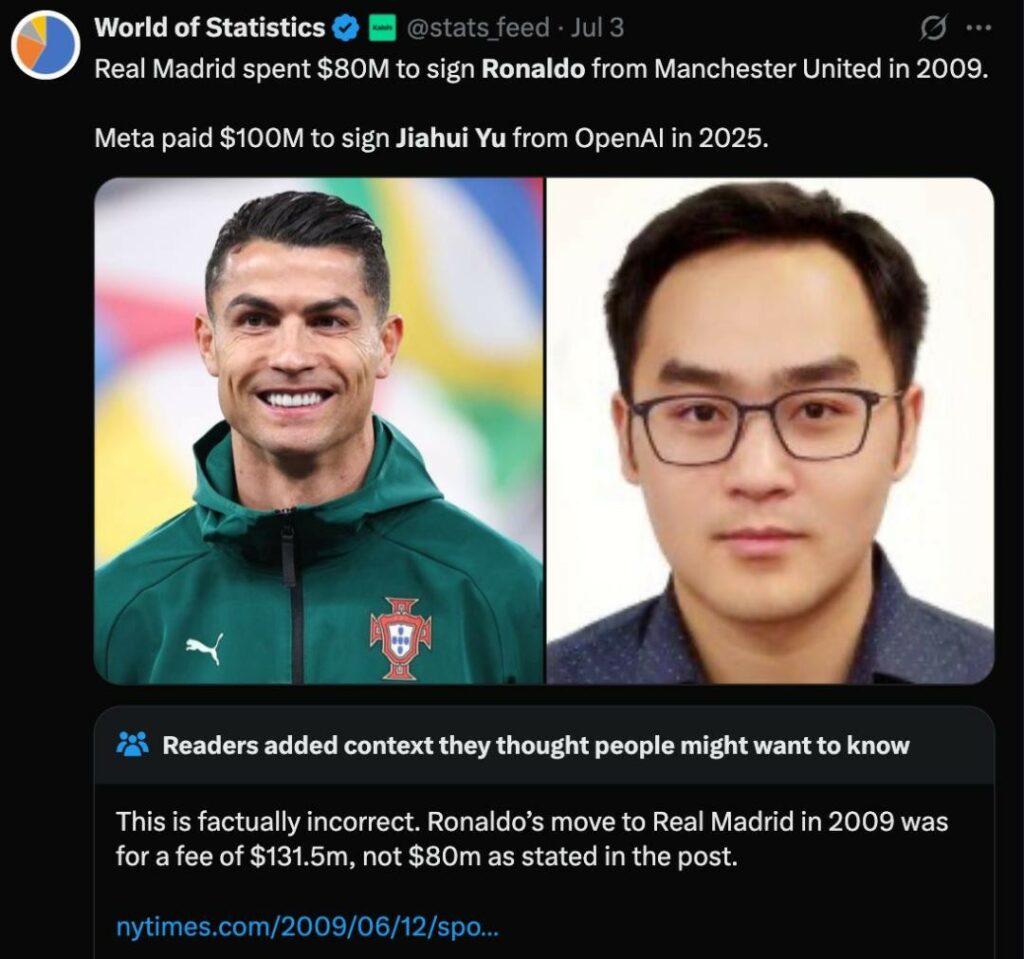
On July 11, local time, it was revealed that Google DeepMind had successfully “recruited” the core team of AI startup Windsurf. Not long before, OpenAI was negotiating a $3 billion acquisition with Windsurf, and Geek Park had also discussed it in a podcast. Unexpectedly, the collaboration between the two parties did not materialize, but Google has secured new blood in the AI industry. According to rumors, Google will pay $2.4 billion in licensing and fees to secure the contribution of Douglas Chen, co-founder of Windsurf, along with several advanced research institutions, to strengthen its AI programming projects. Windsurf, for its part, will remain formally independent and will be able to continue licensing its technology to other companies.
This model is not new, but a reflection of an increasingly aggressive strategy by tech giants: Meta, Google, Apple, and Elon Musk’s xAI are now openly competing to attract the best talent, even at the cost of stealing’ entire teams from emerging startups or directly from rival giants like OpenAI and Anthropic. There’s talk of compensation packages that can reach tens or even hundreds of millions of dollars, outsized signing bonuses, and stock options that transform key researchers and engineers into true “stars” of the tech market. CEOs themselves often take the field, organizing personal calls, confidential meetings, or targeted investments to attract a few top-level profiles.
Among all the big players, Meta’s approach stands out for its unscrupulousness. In June, Mark Zuckerberg’s company completely reorganized its AI team, creating a “super lab” and acquiring nearly half of the startup Scale AI for $14.3 billion. In addition to its stake in the company, Meta also named Scale AI’s young CEO, Alexandr Wang, as its new Chief AI Officer, demonstrating its willingness to spend to secure strategic positions. At the same time, Meta has directly targeted top researchers from OpenAI and Google, offering contract packages of up to $300 million over four years, with the possibility of cashing in a significant portion immediately.
OpenAI has thus found itself, unwillingly, becoming a sort of “supermarket” for AI talent. According to internal sources, Meta has already snatched at least seven of the top AI model developers and researchers from the company founded by Sam Altman. Altman, while downplaying the departure of the most strategic profiles, has admitted the need to intervene, distributing retention bonuses between $1 and $2 million to convince key researchers to resist external offers. The situation has been exacerbated by the internal tensions and governance crises that have rocked OpenAI over the past two years, making its staff more vulnerable to rivals’ wooing.
But the competition isn’t limited to Meta. Even Apple, historically reluctant to publicize its AI research, has been forced to change course. It has begun allowing its researchers to publish scientific papers and has begun massive investments in large-scale models. However, this didn’t stop Meta from convincing Apple’s director of core model research to move on, offering him over $100 million, a salary that exceeds that of almost all Apple executives, with the exception of CEO Tim Cook.
Overall, what’s happening in Silicon Valley increasingly resembles a veritable “football transfer market” for artificial intelligence talent. Profiles that in just a few years move from Google to OpenAI, then to Meta or xAI, seeking the richest package or the most coveted promotion. In some cases, these researchers decide to found a new startup, attracting hundreds of millions in funding just thanks to their accumulated resumes.
Others, however, refuse the astronomical figures so as not to become “talent nomads”. Meanwhile, on social media, a photo comparing a Chinese AI researcher, paid like a soccer superstar, to Cristiano Ronaldo has gone viral: a clear sign that in Silicon Valley, the true champion today is not who scores the most goals, but who writes the best algorithm.

I Large corporations offer compensation packages of tens or even hundreds of millions of dollars to quickly snatch entire teams and key talent from rivals. Often, CEOs themselves take the fight personally: they organize direct calls, confidential meetings, or strategically invest in startups, with the aim of winning over a few high-profile founders or engineers. Companies “hit” by these maneuvers are therefore forced to react, distributing ever-higher retention bonuses to stem the drain of skills and retain their best talent.
It can be said that the “war for talent” in the field of artificial intelligence in Silicon Valley has now reached paroxysmal levels, with the vast majority of funds ending up feeding a tiny elite: that 1% of the most sought-after and qualified talent in the sector.
This is yet another confirmation that the world of work is radically changing: artificial intelligence risks concentrating in the hands of a few what once belonged to the many.
To posterity the arduous sentence.
Follow us on Google News to receive daily updates on cybersecurity. Contact us if you would like to report news, insights or content for publication.
